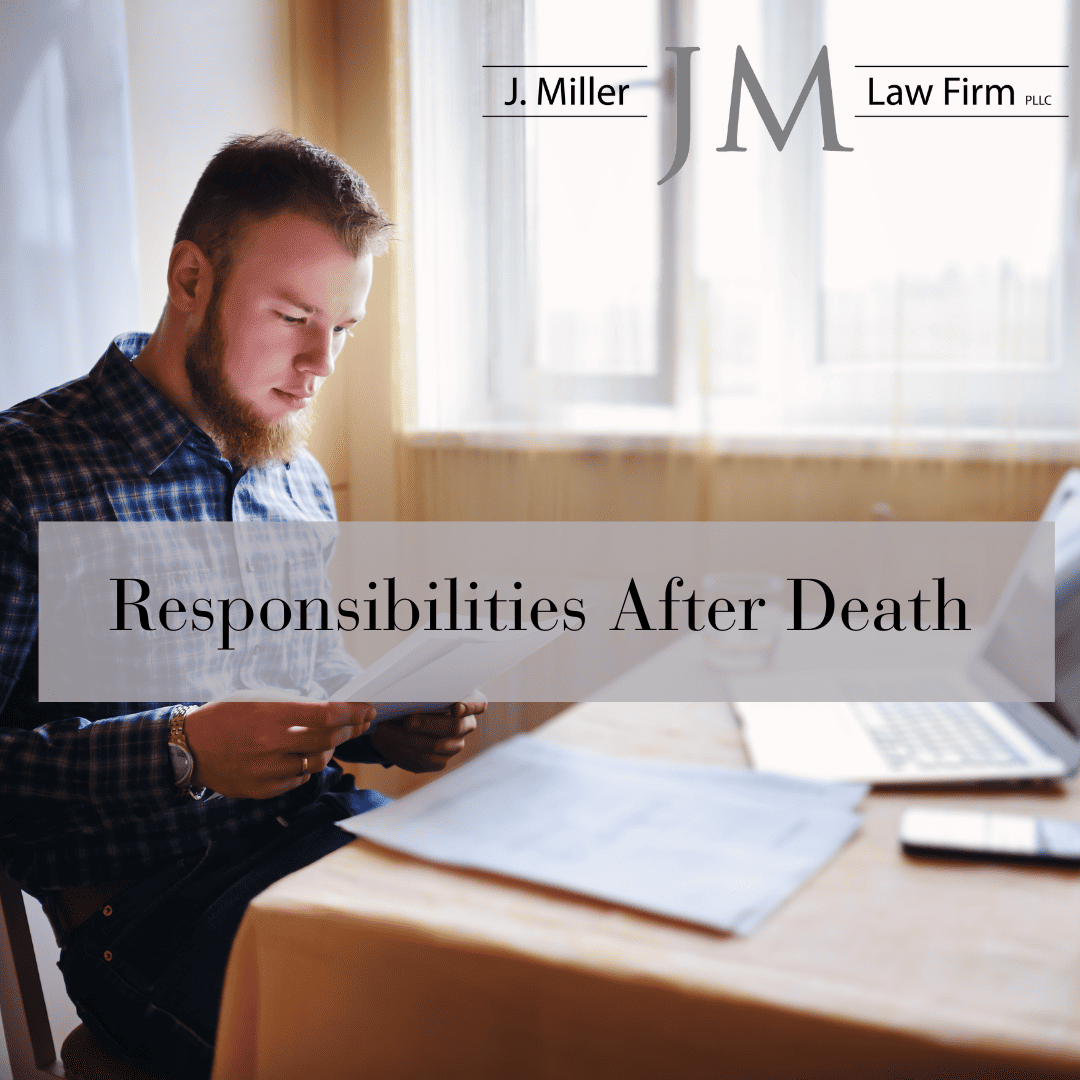
30 May Responsibilities After Death
When a loved one passes, the last thing we want to do in the middle of the grieving process is to think about what responsibilities or steps are necessary as a result of the death. But when you get past the initial stages and have spent time with family members, it is a good idea to look at what else needs to be done sooner rather than later. I call this a surviving spouse or surviving heir checklist.
Depending on if there was a Will, no Will, a Trust, or other transfer documents, we can determine if there needs to be a probate filed, and what that process looks like. Sometimes people make an assumption that there does not need to be a probate, but upon reviewing the whole picture, it may be necessary in order to transfer assets. In other situations, limited assets can be transferred via what is called a Small Estate Affidavit. Vehicles may also be able to be transferred using the correct state forms and with a death certificate.
If there is a Trust, we discuss trust administration next steps. We also look at what notifications need to be made and how that can be handled. Digital assets may also need to be reviewed and updated or closed.
One of the common areas that often gets overlooked for real property is when spouses (not always spouses but often) hold real property as “joint tenants with right of survivorship.” This is a common way for spouses and long-term partners to be listed on a deed, and it allows the house to pass directly to the survivor. When the first spouse passes, the surviving spouse is supposed to file an affidavit of surviving joint tenant (along with the death certificate) with land records in the county where the property is located. That notifies the county that the first joint tenant has died, and the property now belongs solely to the surviving joint tenant. The issue is that often that easy process gets overlooked, and then later a transfer of property is attempted, or a probate is needed for the second spouse, and your heirs will have to take additional steps with land records to clear up the title. If a number of years have gone by or a number of deeds have been “DIY” this can pose additional problems. Usually, people do not intend to cause additional work or costs for their surviving family members, so taking simple steps earlier on can prevent issues down the road.
Also, if you have a deed from years ago, or did a do-it-yourself deed, it would be a good idea to take another look at it and make sure that how you “think” you hold the property as owners is really what you intended, so that any changes needed can be made before a death. Business owners also need to be aware that their business interests are an asset and needs to be addressed in the estate planning process. If you have other business partners, there may be a buy-sell agreement in place. Governing documents should also address transfers of the business, and of course business assets need to be considered in the estate planning process.
If you have questions on estate planning, probate, or trust administration matters, let’s talk about it.
918-938-1322
#estateplanningattorney #probateattorney #trustadministration #avoidingprobate
#businesssuccessionplanning



